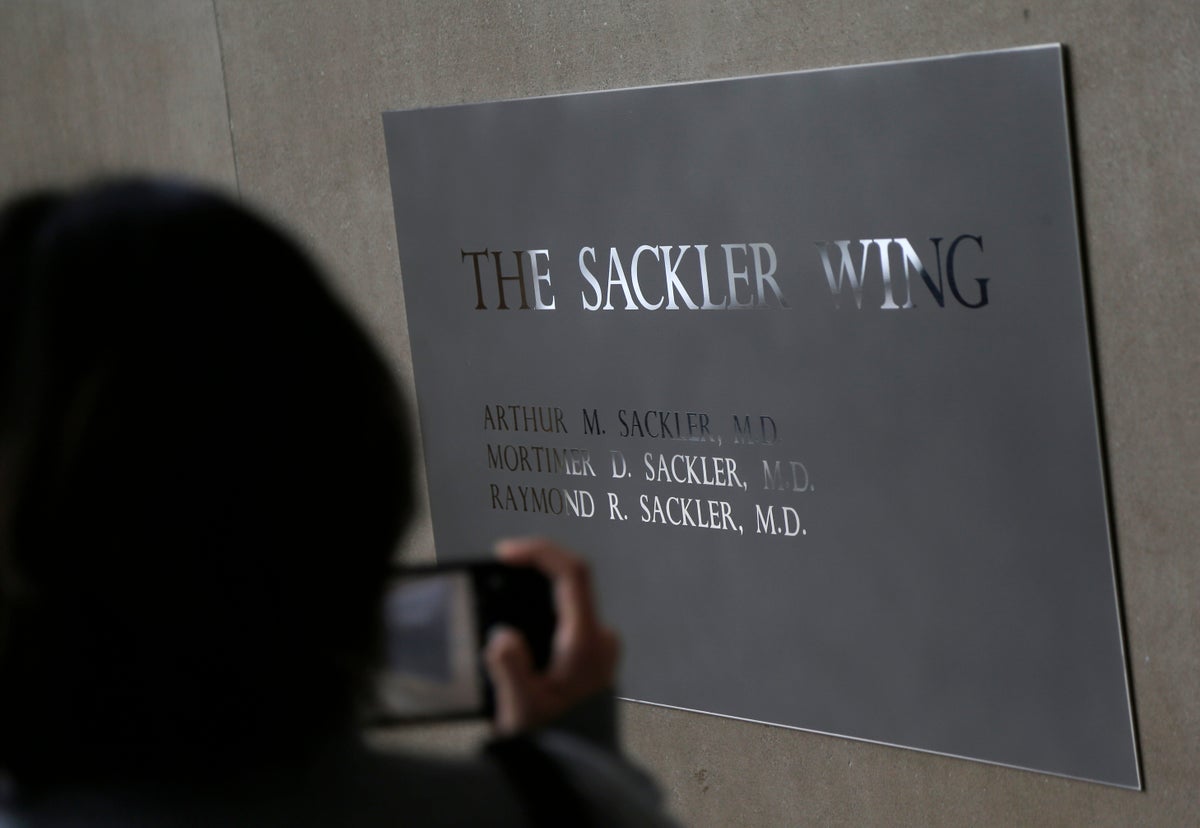
Support truly
independent journalism
OxyContin maker Purdue Pharma is trying to chart the course for a new mass settlement of thousands of lawsuits over the toll of opioids after the U.S. Supreme Court last month rejected its previous deal, which was years in the making.
State, local and tribal governments and individual victims want a sense of justice — and money.
And in this case, there's not enough money to pay for all harms that are claimed. Most of what there is is held by members of the Sackler family who own Purdue — much of it in overseas trust funds that are protected from U.S. lawsuits.
Here's a look at where things stand:
Why are so many parties suing Purdue?
A nationwide opioid epidemic has been raging for decades. In recent years, overdoses have been linked to about 80,000 deaths a year.
Currently, the biggest killers are fentanyl and other potent substances produced illicitly in labs. Before that, it was heroin, and before that prescription drugs, including OxyContin, which hit the market in 1996.
Purdue targeted doctors with a campaign asserting that there was a low risk of addiction to its latest formulation of a kind of drug that's been around for centuries.
Since 2017, drugmakers, wholesalers, pharmacy chains and other businesses have agreed to pay more than $50 billion in settlements with governments that have sued. Most of the money is intended to go to stemming the crisis.
Purdue's deal would be among the largest.
What was the previous settlement?
Purdue filed for bankruptcy protection nearly five years ago as a way to settle all the legal claims it was facing.
The deal it ultimately struck called for Sackler family members, who had already left the company's board of directors, to give up ownership of the company, too. It would become known as Knoa Pharma and its profits would be used to combat the opioid crisis. The Sacklers would contribute up to $6 billion.
Unlike nearly all the other opioid settlements, a piece of the Purdue one — $750 million — would go directly to some people who were addicted to OxyContin and the families of those who died from it. The biggest payouts would have been under $50,000. Most would be far less than that.
In exchange, Sackler family members would receive immunity from all past, present and future lawsuits alleging a role in the crisis.
The deal had nearly universal support among the parties in the case, though some of them were begrudging, along with some holdouts and many eligible individuals who didn't vote.
What did the Supreme Court say?
In a 5-4 vote, the Supreme Court rejected the settlement.
Justice Neil Gorsuch, writing the majority opinion, said that the law doesn't allow the legal protections for Sackler family members who themselves did not file for bankruptcy protection when some of the creditors in the case don't agree.
For most of the lawyers and parties that spent years hammering out the deal, it was a devastating ruling.
What happens now?
A judge Tuesday said he intends to grant lawyers' request to have until Sept. 9 to work out a revised deal.
They have asked that retired U.S. Bankruptcy Judge Shelley Chapman, who helped the parties iron out the previous deal, be appointed to mediate again, along with mediation expert Eric Green.
Sackler family members said after the Supreme Court ruled that although they believe they would prevail in trials "that a swift negotiated agreement to provide billions of dollars for people and communities in need is the best way forward.”
Attorney Mike Quinn represents Ellen Isaacs, a mother whose son died from an opioid overdose, in her fight against the earlier settlement. Quinn said it's essential that any new deal give clients like his a say in whether to accept it.
What would happen if a deal isn't reached?
Probably litigation.
A failure to reach a deal in two months could open the door for some 900 previous lawsuits against Sackler family members alleging a role in creating the crisis to be resumed. More could be filed.
It then could be a race to trial. There's no certainty about which side would prevail. But a small number of judgments against the family could wipe out their fortune, leaving nothing for the thousands of other parties with potential claims.
A key bankruptcy committee on Monday asked a judge to give it the exclusive right to sue Sackler family members, claiming that from 2007 until 2018, they fraudulently transferred $11.5 billion from the company to a series of trusts for their benefit to avoid losing in legal claims.
“At the Sacklers’ direction, Purdue ignited and fueled an opioid firestorm that continues to rage to this day, generating tens of billions of dollars in revenue for Purdue, but at the cost of hundreds of thousands of American lives, and economic harm to the nation measured in the trillions,” the Official Committee of Unsecured Creditors in the bankruptcy said in a legal filing Monday.
Purdue and other major groups of creditors support that plan.
Sackler family members issued a statement Tuesday criticizing the motion: “Their filing is riddled with factual errors, ignores that about half the money was paid in taxes and is contrary to the goal of working together towards a resolution that provides billions of dollars for communities and people in need.”
Are there other possibilities?
Sackler family members could file for bankruptcy to get legal protections.
Or Congress could intervene.
Attorney Jason Amala represented plaintiffs in lawsuits over sexual abuse in the Boy Scouts and Catholic churches where similar mechanisms were involved in settlements. Amala said Congress could modify bankruptcy laws to allow the legal protections in exchange for “the same auditing and transparency process as the company that filed for bankruptcy.”







